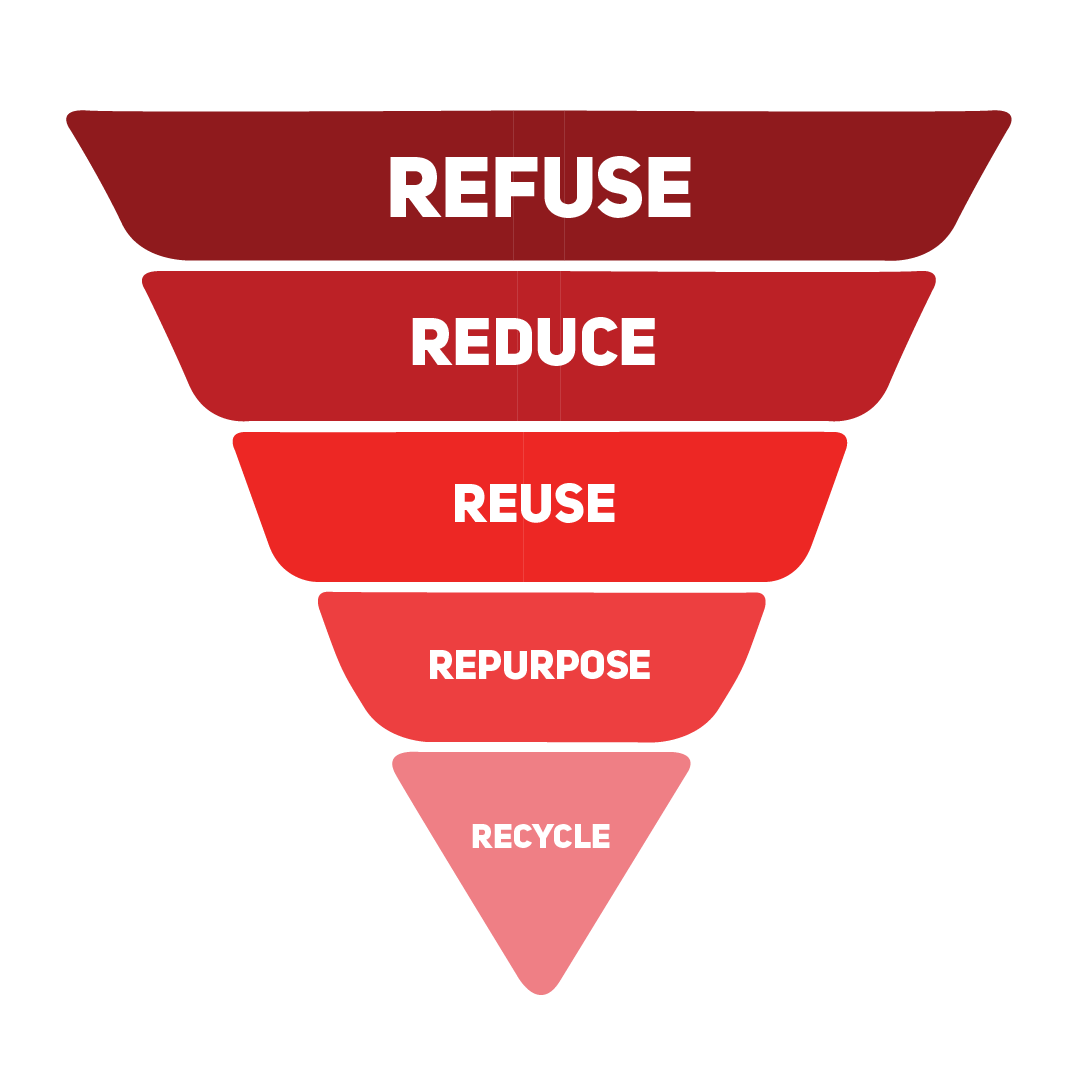How to Save the Planet...on a Budget
Everyone wants to know how to save the planet. And how do we do it without breaking the bank? I think there is a misconception that you have to spend loads of money in order to be sustainable. This can be the case if you switch from fast fashion to sustainable and ethical fashion brands far beyond what you’re accustomed to. Or if you restock your entire pantry with only organic produce.
But we’re forgetting the more important and impactful things we can do totally for free, or for very little cost at all. Things like raising awareness, voting, activism, learning and simply refusing to buy something in the first place.
I want the attention to move away from small individual changes that leave us feeling guilty if we don’t meet them and can be costly, onto bigger and more impactful actions we can take that can happen on a tight budget.
let go of the idea that you can save the planet on your own
The world's problems certainly don’t fall onto your shoulders alone. This is no different when it comes to climate change. You haven’t caused this problem alone, so you can’t solve it alone. Individual power only goes so far. So take the title of this video and this list with a healthy pinch of salt. At the end of the day if we’re to save this planet we need big corporations and governments on board to make that happen. All the litter picking, Meatless Mondays and staycations in the world won’t go far enough unless the unsustainable system we’re living in changes dramatically.
2. go on a budget
In order to save the planet on a budget, we must of course go on a budget! Not only will this save you money but it’ll stop you from buying new stuff (using resources), and therefore from wasting that new stuff somewhere down the line (wasting resources). Sit down and go through your expenses, what’s coming in and out and be honest about where you’re spending your money. Set up a budget tracker (there are lots online), and stick to the essentials where you can. Cut back on the unsustainable and unhealthy habits that affect your wallet and impact the planet.
3. don’t buy fast fashion
In writing up your budget, you may find yourself noticing the amount you’re spending on clothing. If you’re spending that hard earned cash on fast fashion, think again. Paying for cheap clothes, made in unethical factories, by underpaid and abused workers, with polluting plastic fabrics dyed by chemicals, needs to stop dead in it’s tracks. So give up on fast fashion and save your money instead! Check out my full blog post on how to shop sustainable fashion here.
4. Leave your lawn alone
Having a beautiful manicured lawn seems to be the norm, but what about all the insects and pollinators that are missing out? They need these flowers and plants, and we have an opportunity to give that to them! Consider switching your grass lawn for wild flowers, or sectioning off an area of your garden to see nature flourish.
5. become a minimalist
Living minimally is inextricably linked to living sustainably. Cutting back, having meaning behind what you own and being mindful of what you buy will have a huge ripple affects on your personal carbon footprint. A central part of our problem is our lust for new stuff. Capitalism means that spending money is essential for the economy to keep going. It’s quite literally ingrained in society to be unsustainable with our purchases. So think twice and look into how minimalism can allow for a more sustainable lifestyle. Here are some hacks to start decluttering you life.
6. switch to renewable energy
Changing your energy provider is probably one of the easiest switches you can make. It simply means that the energy you’re using in your home is coming from renewable energy sources instead of fossil fuels that damage the planet. I personally use Octopus Energy, who I have been with for years now. You can get a quote from them online in a couple of minutes, and easily switch from who you’re with right now. Use my link and get £50 in your accont on sign up!
7. use ecosia
It doesn’t cost any extra money to switch to a search engine that plants trees when you’re browsing the web! A completely free switch that requires no effort. Check it out here.
8. talk about sustainability…with everyone
What’s better than becoming #sustainable? Talking to everyone about #sustainability! Yes you can bring your own reusable cup, recycle properly and purchase secondhand, but beyond this, what are you doing? Are you talking about it with your friends? Are you encouraging them to make switches? Are you discussing with them the importance of voting for governments and leaders who support green policies? Are you protesting, getting involved with activism and putting pressure on your government?
9. register to vote
If you aren’t already registered, now is the time. We are the generation who can make a difference now that we understand what’s going on with our planet and its people. Vote for equality and for our planet. Make your voice heard. You can’t separate politics from the climate emergency. Register to vote here if you haven’t already.
10. accept what you can AND CAN’T CHANGE
Some people won’t be able to go vegan because of their health. Others can’t ditch plastic because of a disability. You might not be able to make personal changes right now due to your mental health. Accept that there will be limitations to what you can or can’t do when it comes to making those switches. Nobody can do it all. Beyond that, the person who seems to be doing it all, either isn’t, or is in a position where that is possible for them.
11. hold brands responsible
Big brands who are continuing unsustainable practices need to be held accountable. Message them on social media and call them out. Email and ask why they are still selling things wrapped in copious amounts of plastic. Question where their materials have come from. Find out from them what their sustainability goals for the next few years, and if they aren’t good enough tell them. And above all, don’t support those who aren’t supporting sustainability in business.
12. speak to your local mp about climate change
It’s easy to only focus on big leaders in politics. Don’t forget that it’s actually your local MP who represents you as their constituent. You pay them with your tax money to represent your wants and needs. Tell them you want to know their views on climate change and ask them to vote for green policies in the future. Say if they want your vote, they need to represent these issues that we are facing. Hope for Future have some really helpful templates for you to use here.
13. always be prepared
Sustainability involves being prepared ahead of time. I can sit here and tell you to ditch plastic or bring a reusable cup, but fudamentally that’s no use if you forget to prepare by packing it in your bag. Make sure you’re bringing those reusable items with you, planning your meals to avoid waste, have tools to repair things when they break and thinking ahead to avoid missteps.
14. read and read more
Education and knowledge brings us closer to understanding any topic. Don’t trust the internet or social media posts like this to base your learnings on sustainability. Read books. Read diversely. Understand what’s going on with the planet. Why it is. The science behihnd it. The impact it is having now. Who it impacts. The impact it’ll have in the future. How we can solve it.
15. set a timer for your showers
This is a small practical tip I haven’t shared before that can cut your water usage dramatically. Save on water by showering to the legnth of one or two songs, or simply set a timer!
16. learn how to repair
We have lost the skills to repair things because we often no longer need to! It’s far easier for us to just order a new replacement. But learning how to sew, repair and fix things when they break saves money and resources.
17. change to an ethical bank and ethical investments
Knowing where your money is going is super important, even on a budget. Switching to an ethical bank, and changing your pension to an ethical one won’t cost you any money. But it will ensure that your money isn’t being used to support unsustainable business. I am personally with Nationwide and Starling!
18. empty your inbox and online storage
Online storage uses a lot more energy than we realise. Simply by emtpying your inbox regularly and keeping your online storge low, you can reduce the amount of energy your personal digital world is using. Find out more about this here.
19. say no
To fast fashion, to plastic bottles, to eating meat, to Amazon, to wasting money and resources on new stuff. Refusing is the at the top of the sustainability pyramid (alongside Reduce, Reuse and Recycle). It is an important reminder that not only will saying no enable you to save more money, but it’ll enable a far more sustainable lifestyle.
20. unplug and switch off
Keeping our devices switched on in the background wastes far more energy than we realise. Remember to switch off chargers and plugs at night, when leaving the room or going away for the weekend to reduce this wasted energy.
21. secondhand first
Before you buy anything new, see if you can find it secondhand first. Look on depop for the exact clothing item, head to Facebook Marketplace to search for secondhand furniture, browse eBay for a new but used gadget. Often you’ll find exactly what you need, for a much more affordable price!
22. learn how to store food properly
Avoiding food waste is second nature if you know how to store your food in the right way. A UN study concluded that the world wastes 1/3 of its food. So don’t be a part of this statistic and take care of the food you buy. Allow mushrooms to breath by opening any packaging, wrap herbs in a damp cloth in the fridge, put leftovers in air tight containers, keep potatoes in the dark.
23. compost your food
Another great way to reduce food waste is to make sure you’re composting it. I go on about composting so much for a reason. If you’re putting your food in the bin, it isn’t composting the same as in landfill. There isn’t the oxygen for it to break down in the same way as it does in a compost bin. Read this for a full understanding of why. Whether you have a garden or not there are different ways of composting your food. Either get your own compost bin in your garden, ask to use a neighbours, find out from the local council if they collect food waste or see if there is a local garden who will take food waste.
24. start a petition
Going beyond protests and social media activism, starting a petition could be a good place to gain public interest in an environmental cause that you can put to your local MP or government. Not only does it raise awareness of an issue to your community, but it ultimately shows that you’re not the only one behind an issue, bringing you one step closer to solving it. Find out how to start a petition here.
25. plant a pollinator friendly plant
When gardening, consider what plants will be suitable for pollinators like bees and other insects. What flowers do they love? Make your garden filled with them!. This can also be done without a garden by creating a windowsill garden for pollinators to enjoy! Find a full list of plants for pollinators here.
26. reuse what you already have, always
Seems obvious, but sometimes we have to remind ourselves that before we click ‘Buy’ we may already have something that can serve the same purpose lying around. If you’re looking to buy jars for storage, take a look in your fridge and repurpose jars of food. If you break something, repair it. Collect the excess candle wax when you finish it and make your own candles with it. Dry out flowers for a long lasting display. Discover more swaps like this in my book, Minimal: How to Simplify Your Life and Live Sustainably
27. learn about local recycling rules
Every area has different rules when it comes to recycling, so make sure you know yours! You may have been throwing something in the recycling all this time to only now learn it can’t be recycled. Make sure you’re washing your recycling so that it does get recycled, and gather things that aren’t collected to take to the recycling centre weekly or fortnightly. Find out about recycling collection local to you here.
28. understand intersectionality within environmentalism
Sustainability goes beyond recycling and zero waste. Caring about the environment is caring about people. Who does the climate crisis affect the most? It isn’t those causing the most damage, but BIPOC who are on the frontlines of climate change. Why are we in this situation in the first place? White supremacy and capitalism has caused an unsustainable world where wealth is hoarded. Is sustainability accessible to all? Mental and physical health, where you live, how much money you earn and your job change how accessible it is to live “sustainably”. In order to solve the climate crisis, we must be intersectional and learn how social justic issues have intertwined to create this issue.
29. develop community
We’ve lost our sense of community in the modern world. We don’t spend enough time talking to our neighbours, speaking with our local comminities or finding out how to get involved in local climate issues. Develop a community locally to you, so you can be involved politically in decisions made where you are, but also so that you can find likeminded people who share your passion for the environment. By doing this not only will you feel more motivated, connected and supported, but it’s more likely change will happen if there are more of you involved. Don’t forget about online communities too!
30. go beyond lists like this
I know my own hypocrisy in creating a list like this. The title is clickbait and no, you can’t save the planet on a budget. It is going to require a lot of money from big businesses, the most polluting countries and the richest people on the planet, to actually make significant changes to our infrastructure and standards of practice if we’re to stop the planet warming beyond control. So go beyond this list by understanding that while individual change can be powerful, it isn’t enough to save our planet.
Let me know in the comments any top tips you have for saving money while living sustainably! I love to hear your feedback and advice on these topics so we can all keep learning more.
*This blog post include affiliate links
youtube video
MY BOOK: minimal
I hope this list has made a start in helping you start thinking of ways to reduce your waste. I know that it can be difficult to know where to start when bombarded with overwhelming facts and statistics every day. We all want to make a difference, so I’ve written a handy and easy-to-follow guide on how to simplify your life and live sustainably.
Handy and easy-to-follow guide. A lot of books on minimal living tend to be preachy, but I loved the kindness Olivia displays. A beautiful read. Women's Way














